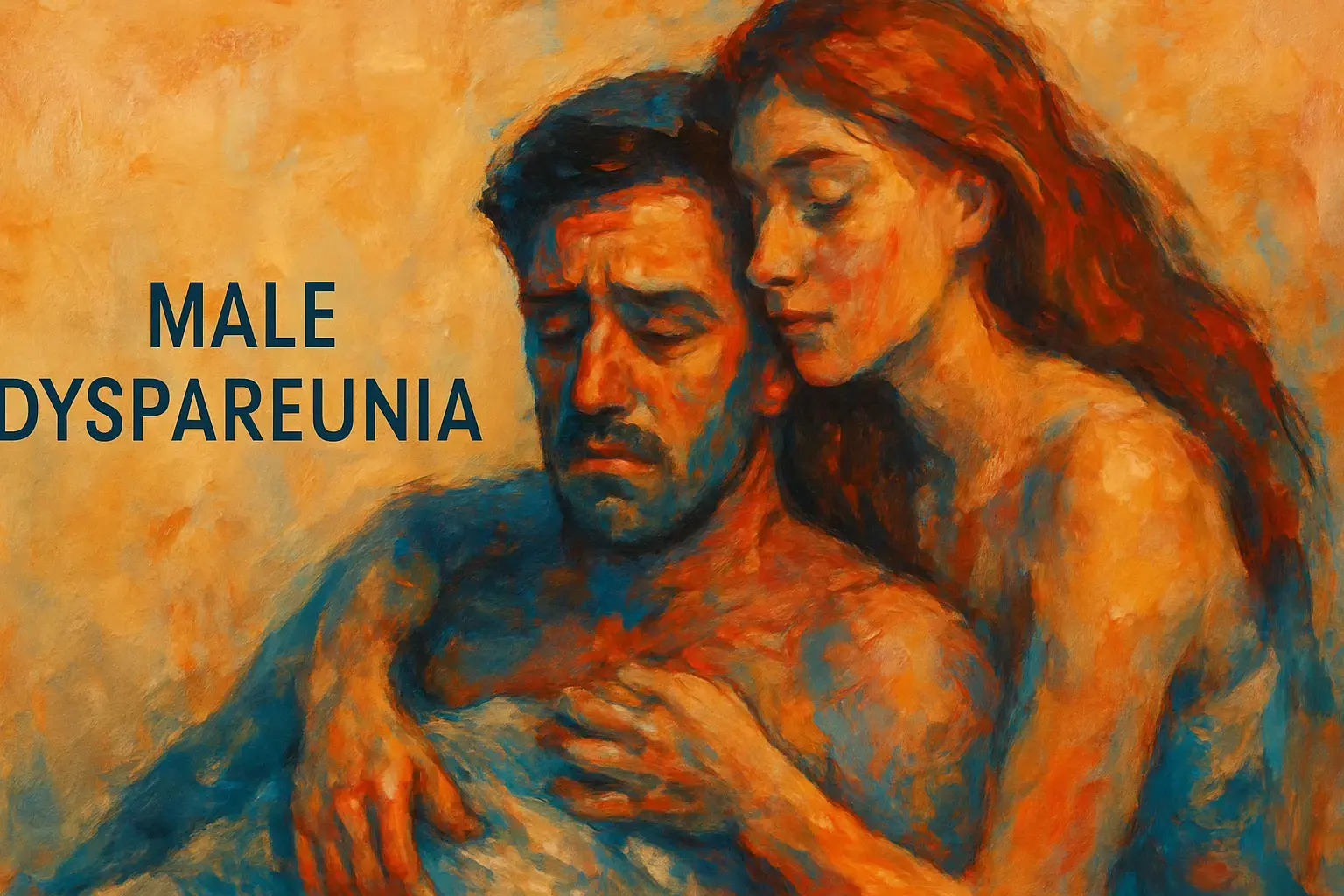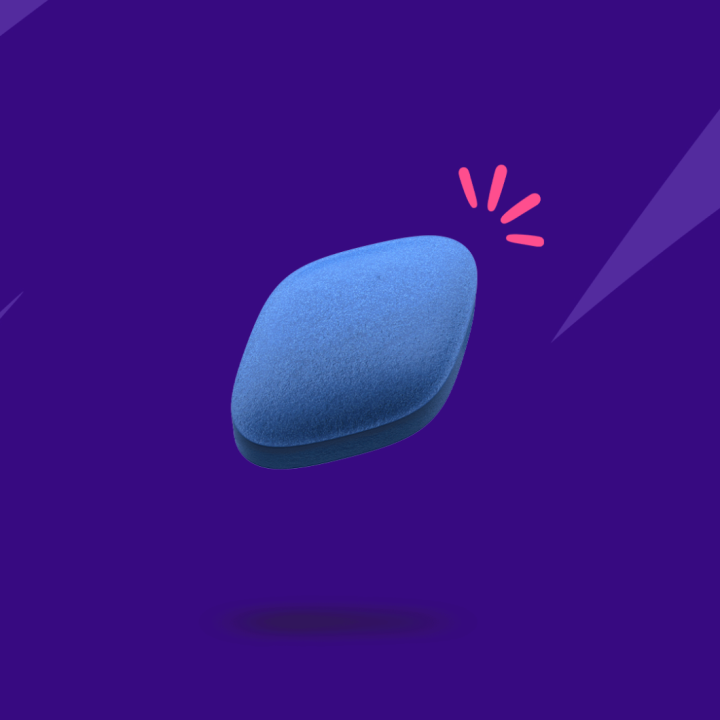
Male Dyspareunia (Painful Intercourse) in Bangladesh: Causes, Symptoms, Diagnosis & Treatment
Sex should feel good — not painful. Yet for some men, intercourse becomes uncomfortable or even distressing. Male dyspareunia, or painful sex, can affect men of any age and often goes unspoken.
In Bangladesh, many men hesitate to discuss sexual discomfort because of social taboos or lack of awareness. But it’s more common than most people think. The reasons vary — sometimes it’s a simple irritation that clears up on its own, and sometimes it’s linked to infections, nerve problems, or long-term medical issues. The good news is that most cases are temporary and respond well to treatment when identified early.
What is Dyspareunia?
Dyspareunia means pain during or after sexual activity. In men, this pain can appear in the penis, testicles, lower abdomen, or pelvic area. It may feel like a burning, aching, or stabbing discomfort that occurs during or after sex.
It can result from irritation, allergies, or infections, but sometimes it’s due to nerve sensitivity or even emotional factors. While most medical studies focus on women, men experience it too — often silently. Recognizing the signs early and consulting a doctor can prevent complications and restore normal sexual comfort.
Symptoms of Dyspareunia in Men
Pain may range from mild irritation to sharp, shooting discomfort. Typical symptoms include:
- Sudden or stabbing pain during penetration
- A burning or tingling feeling
- A dull ache that lingers after intercourse
- Pain in or around the penis or scrotum
- Discomfort or burning during ejaculation
Some men may also notice anxiety or loss of desire because of repeated pain. If these symptoms persist or affect confidence, medical attention is recommended.
Causes of Male Dyspareunia
Painful intercourse can develop from many different reasons — from surface-level irritation to deeper tissue or nerve issues. The most common causes include:
Sexually Transmitted Infections (STIs)
Infections such as chlamydia, gonorrhea, syphilis, herpes, or genital warts often cause inflammation or sores that make sex painful. STIs can lead to urethritis, an infection in the passage that carries urine and semen, resulting in burning and soreness.
In Bangladesh, where STI awareness is still low, many men ignore early symptoms. With prompt testing and treatment, however, most infections clear up quickly and safely.
Peyronie’s Disease
This condition creates a curvature of the penis due to scar tissue forming inside. It often develops after an unnoticed injury. The curve may not always cause pain, but in some cases, it leads to tension or pressure during penetration. In severe forms, it may also affect erection firmness or confidence during intimacy.
Allergies or Sensitive Skin
Reactions to condoms, lubricants, or soaps can cause itching, dryness, or redness. Harsh or scented products, especially common in local markets, may irritate sensitive skin. Choosing fragrance-free and dermatologist-tested cleansers helps avoid this problem.
Friction Burns and Trauma
Frequent or rough sex without enough lubrication can lead to micro-tears or friction burns. Other causes include:
- Dry sex or tight clothing
- Improper or unsafe toy use
- Sudden bending or twisting injuries
A severe case, called a penile fracture, is a medical emergency. It causes sudden swelling and bruising and requires immediate surgery.
Abnormal Growths or Inflammation
Pain can come from genital warts, inflamed follicles, or small viral bumps like molluscum contagiosum. Though rare, penile cancer or bacterial ulcers (chancroids) can also cause pain, mainly in older men. These conditions are treatable if diagnosed early.
Bladder or Prostate Problems
Sexual pain can originate from pressure or inflammation in the bladder, prostate, or urinary tract.
Common causes include:
- Prostatitis (prostate gland infection)
- Interstitial cystitis
- Chronic pelvic pain syndrome
- Urinary infections or stones
These issues are frequently seen among Bangladeshi men with sedentary lifestyles or untreated urinary symptoms.
Medication Side Effects
Certain drugs can trigger painful or prolonged erections (priapism). This is rare but serious. Antidepressants like trazodone, antipsychotics, and erectile dysfunction medicines such as Viagra® or Cialis® are known causes.
Any erection lasting more than four hours needs urgent medical help to prevent permanent damage.
Neurological Conditions
When nerves are damaged or irritated, pain signals can persist even without infection. Common examples include:
- Pudendal neuralgia after injury or surgery
- Peripheral neuropathy from diabetes
- Spinal cord injury
- Post-herpetic neuralgia following shingles
Men with diabetes or chronic back problems are particularly at risk.
Other Possible Causes
- Stress, anxiety, or trauma linked to performance or relationship tension
- Phimosis (tight foreskin) or circumcision scarring
- Testicular cysts or tumors causing pressure pain
- Skin disorders like lichen sclerosis that make skin dry and sensitive
Risk Factors for Male Dyspareunia
Anyone can experience pain during sex, but certain factors make it more likely. In Bangladesh, common triggers include lifestyle habits, poor hygiene, and untreated illnesses.
- Irritating products: Condoms, lubricants, or soaps with fragrance or chemicals can cause itching or rash.
- Lack of lubrication: Dry intercourse or extended sessions can lead to friction burns.
- Age: Younger men are more exposed to STIs, while older men may face nerve or prostate problems.
- Multiple partners: Unprotected sex increases the chance of infection.
- Health issues: Diabetes, urinary infections, and obesity — all common locally — can worsen penile pain.
- Previous injuries: Past trauma to the penis may lead to Peyronie’s disease or hypersensitivity later.
Clean hygiene habits, safe sex, and routine checkups help prevent most of these problems.
Diagnosis of Male Dyspareunia
If sexual pain keeps recurring, consulting a doctor is the smartest move. In Bangladesh, trained urologists and sexologists handle such concerns discreetly and professionally.
Doctors may:
- Examine the penis for swelling, scars, or curvature
- Ask about medical history, medications, and recent sexual activity
- Discuss when and how the pain appears
If needed, further tests may include:
- Urine and blood tests to detect infection or diabetes
- Imaging scans (ultrasound/MRI) to assess internal structure
- Urethral swabs to check for bacteria or viruses
- Neurological or psychological evaluations if nerves or stress are involved
Being open and honest helps doctors find the cause faster and begin the right treatment.
Treatment for Male Dyspareunia
Treatment depends on the cause but is usually effective when addressed early.
Friction Burns or Minor Trauma
Small injuries heal naturally with rest and care.
- Clean gently with mild soap and water.
- Apply a thin layer of petroleum jelly.
- Avoid sexual activity until healed.
- Wear breathable clothing.
- Use a cold compress if swollen.
Severe trauma like penile fracture requires immediate surgery.
STIs and Abnormal Growths
Bacterial infections: treated with antibiotics.
Viral infections: treated with antivirals like acyclovir or valacyclovir.
For genital warts or growths, options include:
- Cryotherapy (freezing)
- Laser or surgical removal
- Topical medications
Peyronie’s Disease
If mild, no treatment may be needed. For painful or severe cases:
- Collagenase injections or oral medication
- Penile traction or stretching devices
- Shockwave therapy
- Surgery in advanced stages
Allergic Reactions
Avoid scented or chemical-heavy products. Applying petroleum jelly or gentle, non-medicated creams can soothe the skin.
Neurological Causes
When diabetes or nerve damage is involved, managing blood sugar is essential. Drugs such as gabapentinoids or duloxetine may reduce nerve pain and improve comfort.
Prevention of Male Dyspareunia
Not every case can be avoided, but healthy habits make a big difference.
- Skip products that previously caused irritation.
- Always use adequate lubrication during sex.
- Discuss side effects before starting new medicine.
- Use condoms with new or untested partners.
- Get regular STI checkups if sexually active.
- Maintain a healthy diet, hydration, and daily exercise.
If you notice pain or unusual sensations, don’t wait. Seeing a urologist or sexologist early can restore comfort, confidence, and long-term sexual health.
Male Dyspareunia: Frequently Asked Questions
Clear answers to common questions about male dyspareunia (painful intercourse) in Bangladesh — causes, diagnosis, and treatment options.




